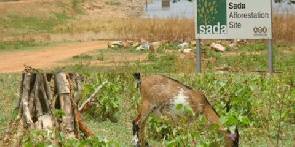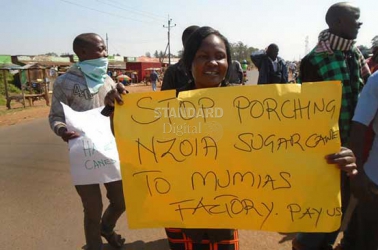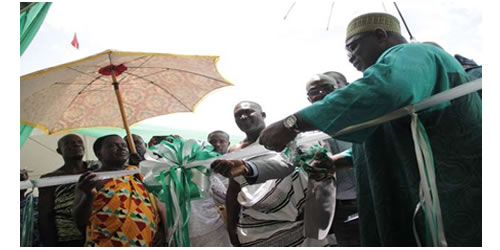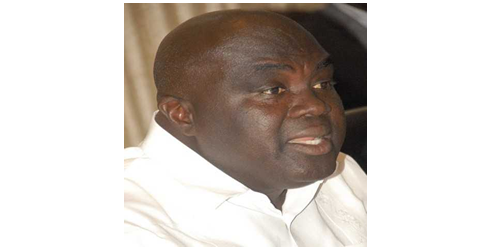Ghana Institute of Engineers supports SADA

Ghana Institute of Engineers has started a partnership programme with the Savannah Accelerated Development Authority (SADA), to harness local and indigenous knowledge, expertise, opportunities and investment to improve the quality of life of Ghanaians.
The partnership seeks to bring together Ghana’s engineering fraternity and a wide range of local and international stakeholders interested in and committed to the development of Northern Savannah Ecological Zone (NSEZ) of Ghana.
As part of the collaboration this year’s Engineering Week Celebration would for the first time be held in northern Ghana; dubbed: “Tamale 2015,” together with the launch of the SADA Business and Investment Forum (SABIF) 2015 from March 24 – March 28, in Tamale.
Other partners include traditional authorities, University of Development Studies, Ghana Investment Promotion Centre, USAID- Financing Ghanaian Agriculture Project; World Bank Group funding Ghana Commercial Agriculture Project, and various multilateral and bilateral development institutions.
The forum on the theme: “Engineering, Opportunities and Shared Prosperity in the Savannah Region of Ghana,” is designed to be transactional in nature, combining exhibitions with technical dialogue session, and is expected to help broker technological knowhow as well as business and investment deals, particularly in the areas of agriculture, agro-business and infrastructure.
The high point of this event would be the high level dialogue session to be chaired by President John Dramani Mahama.
Mr Magnus Lincoln Quashie, President of the Ghana Institution of Engineers, in a speech read on his behalf on Wednesday at a media launch of the 2015 Engineering Week Celebration and the SABIF in Accra said the body’s main thematic areas are “Engineering, key to SADA and national strategic infrastructure, development of a national engineering master plan and engaging the public”.
“As indigenous engineers, we believe that one of the key drivers that support the SADA effort in alleviating poverty, empowering Ghanaians, and achieving the goals of the MDGs is to apply engineering expertise to spearhead an integrated, sustainable, and rapid infrastructure development,” he added.
Mr Quashie said recognising the potential SADA holds for bringing development to the regions covered and Ghana as a whole, the Ghana Institution of Engineers and the Authority have agreed to cooperate to ensure that the professional advice and technical assistance of the institution and its members are made available to SADA to ensure well thought out and engineered projects are delivered towards realising the objectives of SADA.
Angelina Mornah Domakyaareh, SADA Board Chairperson said: “We must say that, this event is coming on as a result of the pro-activeness of the Ghana Institution of Engineers and we urge all professional bodies/associations to emulate their sterling example.”
She observed that on the back of the engineering conference, SADA would seek to draw in the private sector and major local and international investors and development actors to support our development agenda.
She said in the past the Authority had gone through many challenges but is now rebranding in line with its mandate to make it more vibrant and productive by focusing on coordination and facilitation of the role of various players in the zone.
The NSEZ covers Northern, Upper East, Upper West, the northern parts of the Brong Ahafo and Volta; representing the northern half of Ghana.
The SADA Zone has a population of 11 million people, and is endowed with vast natural resources of flat reach arable lands, water bodies and mineral resources including gold, clinker and iron ore.
SADA constitutes Ghana’s response to effects of climate change associated with floods and draught.





